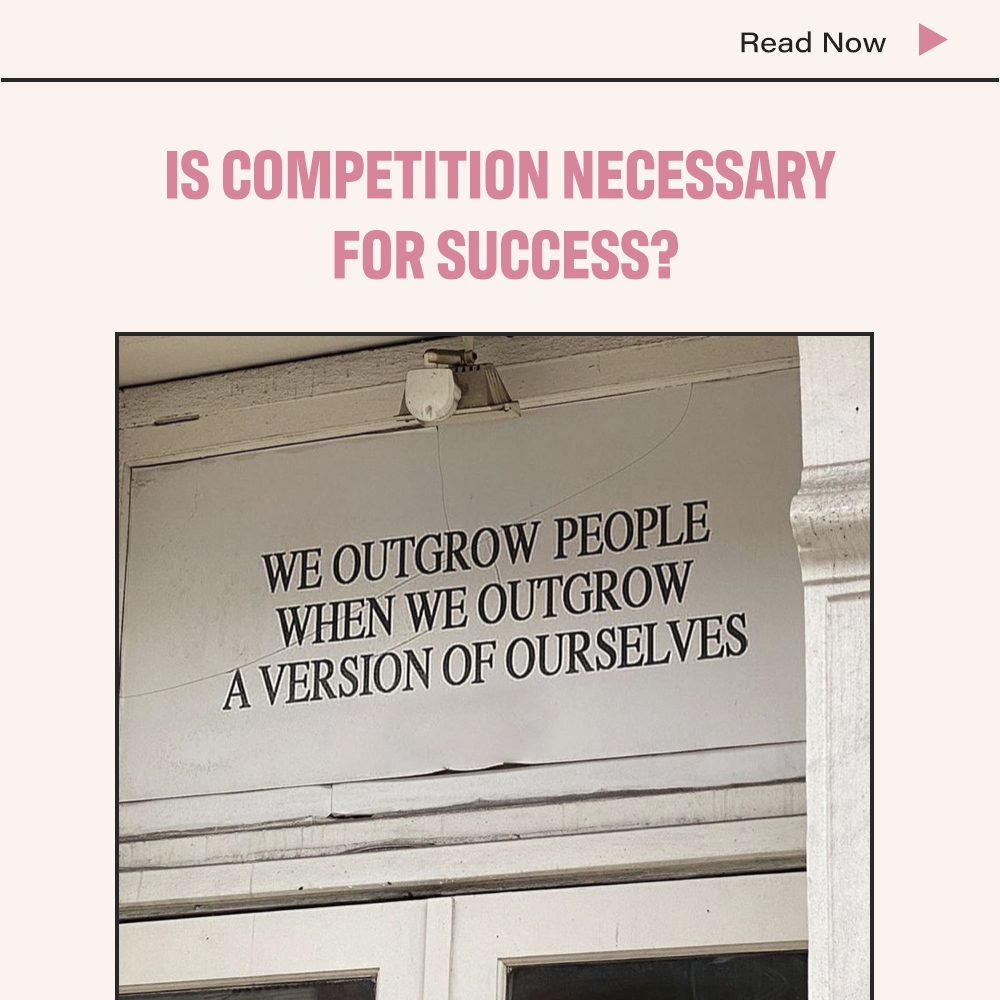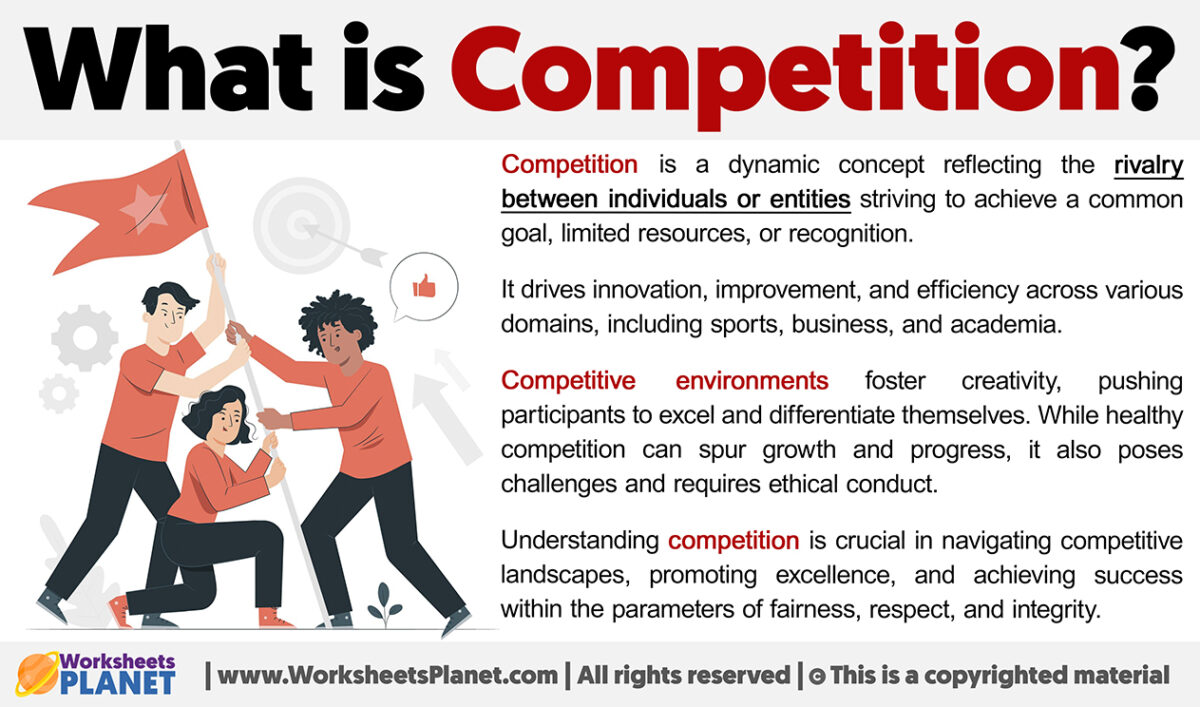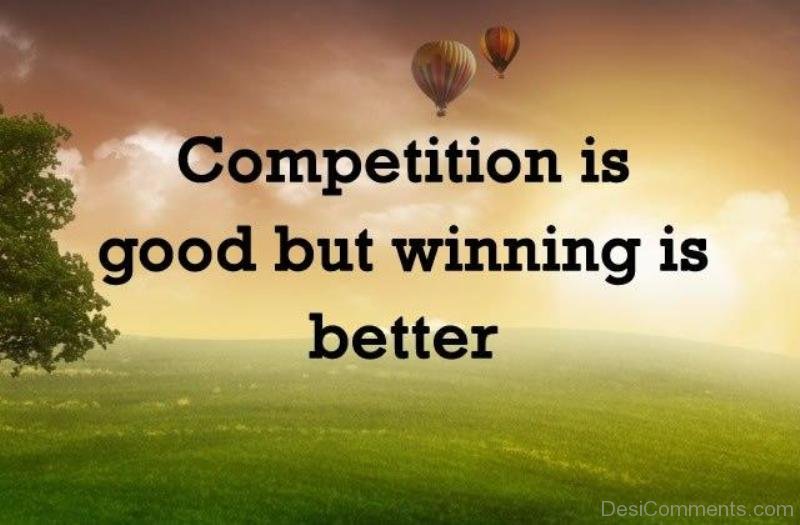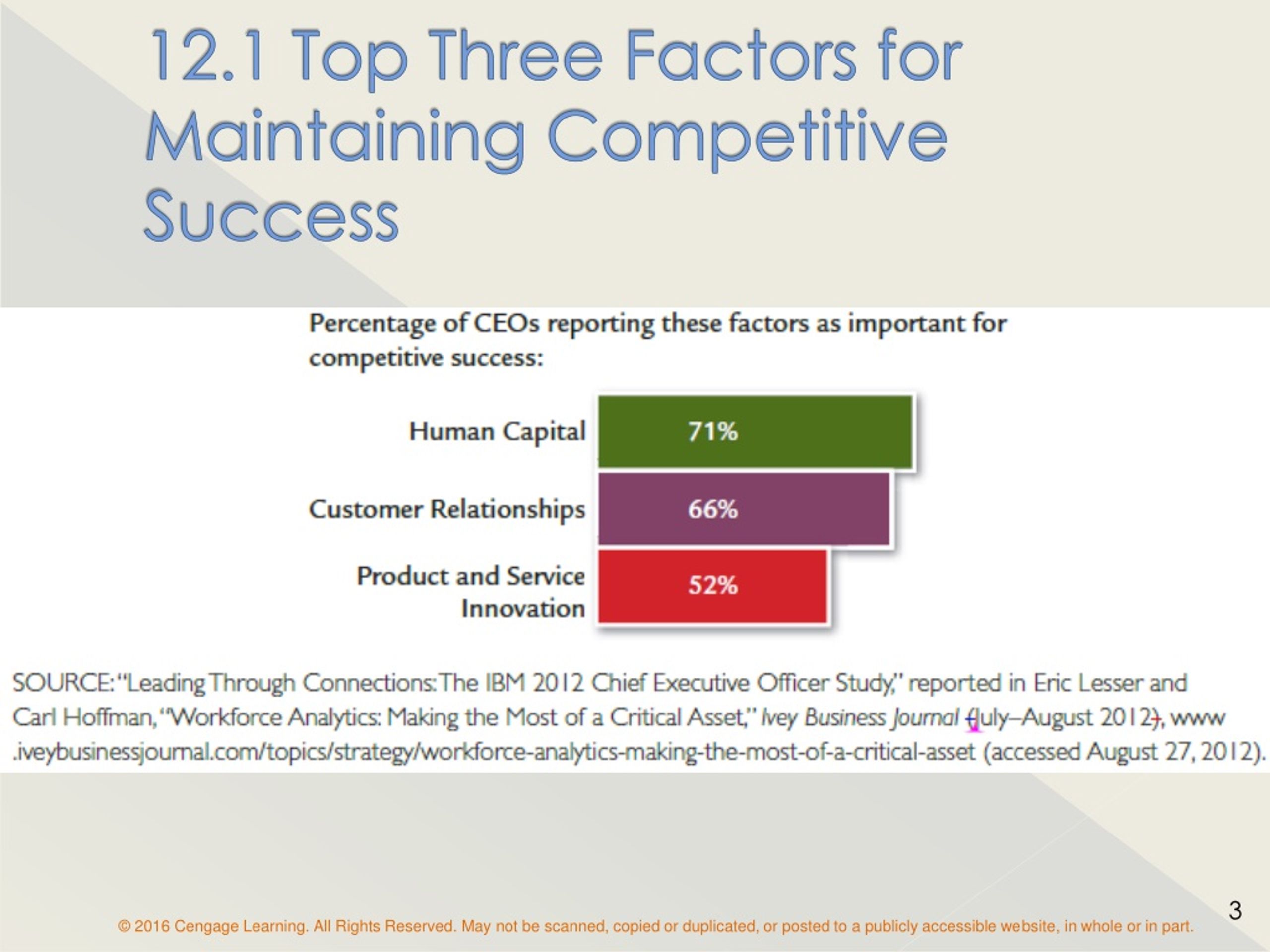Is Competition Necessary For Success

The drive to excel, to surpass, to be the best – it’s a narrative deeply ingrained in our societal fabric. From the classroom to the boardroom, competition is often hailed as the engine of progress, the catalyst for innovation, and the bedrock of success. But is this ubiquitous emphasis on rivalry truly essential, or could a different approach, one rooted in collaboration and intrinsic motivation, offer a more sustainable and fulfilling path to achievement?
This article delves into the multifaceted relationship between competition and success, exploring whether striving to outperform others is a necessary ingredient for progress or a potentially detrimental force that stifles creativity and well-being. Examining evidence from psychology, economics, and organizational behavior, we will consider diverse perspectives on this enduring question, seeking to understand when competition serves as a powerful motivator and when it becomes a counterproductive obstacle.
The Case for Competition
Proponents of competition argue that it fosters innovation and efficiency. The pressure to outperform rivals pushes individuals and organizations to develop better products, services, and processes.
Economist Adam Smith, in his seminal work *The Wealth of Nations*, highlighted how competition in free markets leads to lower prices and higher quality goods, ultimately benefiting consumers. This view is supported by numerous studies showing a correlation between market competition and economic growth.
Data from the World Bank indicates that countries with more competitive markets tend to have higher levels of productivity and innovation. Furthermore, competition can drive individuals to push their limits, acquiring new skills and knowledge in pursuit of excellence.
Competition in Education and Sports
In educational settings, competition, whether through grades or extracurricular activities, can motivate students to strive for academic achievement. Research published in the *Journal of Educational Psychology* suggests that healthy competition can enhance learning outcomes, particularly when students perceive the competitive environment as fair and supportive.
Similarly, in sports, competition is the very essence of the activity. Athletes are constantly striving to improve their performance and beat their opponents.
The Olympic Games, for example, showcase the pinnacle of human achievement, driven by the desire to compete and excel on a global stage.
The Drawbacks of Excessive Competition
However, the emphasis on competition also has its downsides. Excessive competition can lead to stress, anxiety, and burnout, especially when individuals feel pressured to constantly outperform others.
Studies in *Organizational Behavior and Human Decision Processes* have shown that cutthroat competition can damage morale, reduce collaboration, and even lead to unethical behavior.
When the focus shifts solely to winning, individuals may be tempted to cut corners, cheat, or engage in other harmful practices to gain an advantage. This can erode trust and undermine the overall integrity of the system.
The Power of Collaboration
An alternative perspective emphasizes the importance of collaboration and intrinsic motivation. Instead of focusing on outperforming others, individuals can strive for personal growth and contribute to a collective goal.
Research by Edward Deci and Richard Ryan on *Self-Determination Theory* suggests that intrinsic motivation, fueled by autonomy, competence, and relatedness, is a more sustainable and fulfilling driver of achievement than external rewards or competitive pressure.
Organizations that foster a collaborative culture, where employees feel supported and valued, often see higher levels of creativity, innovation, and employee engagement. This approach recognizes that success is not a zero-sum game; it is possible for everyone to thrive when individuals work together and support each other's growth.
Finding the Right Balance
Ultimately, the question of whether competition is necessary for success depends on the context and the individual. While competition can be a powerful motivator, it is crucial to strike a balance and avoid the pitfalls of excessive rivalry.
Healthy competition, characterized by fairness, respect, and a focus on personal growth, can be beneficial. However, when competition becomes cutthroat and driven by external validation, it can have detrimental effects on well-being and ethical behavior.
Moving forward, a more nuanced approach is needed, one that recognizes the value of both competition and collaboration. By fostering a culture that encourages intrinsic motivation, supports individual growth, and promotes teamwork, we can create environments where individuals can thrive and achieve their full potential without sacrificing their well-being or integrity.














:max_bytes(150000):strip_icc()/what-is-competitive-advantage-3-strategies-that-work-3305828_FINAL-5b87022bc9e77c002524e634.png?ssl=1)



